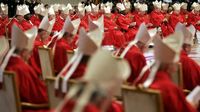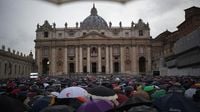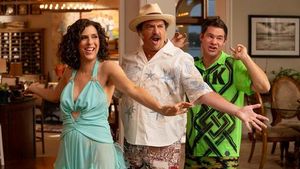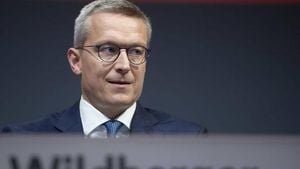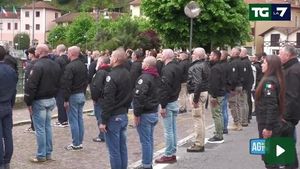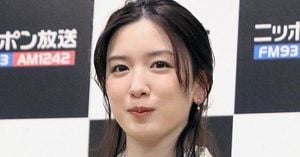The conclave to elect Pope Francis's successor will begin on May 7, 2025, following the death of the beloved pontiff on Easter Monday. This decision was made by Catholic cardinals during a gathering on April 28, where they agreed to delay the voting process by two days to allow for further discussions and unity among electors.
Pope Francis, who passed away at the age of 88 after a long illness, was laid to rest on April 26, 2025, in a ceremony attended by hundreds of thousands of mourners in St. Peter's Square. His death has left a significant void in the Catholic Church, and the upcoming conclave marks a pivotal moment in its future.
The conclave, a time-honored tradition that dates back centuries, will be conducted in secrecy behind the locked doors of the Vatican's Sistine Chapel. The term "conclave" itself comes from the Latin phrase meaning "with key," reflecting the isolation of the cardinals during this critical time. Only cardinals under the age of 80 are eligible to vote, and currently, there are 135 cardinal electors who will participate in this election.
During a press briefing, Vatican spokesperson Matteo Bruni noted that the conclave will commence with a solemn Eucharistic celebration known as the votive Mass Pro Eligendo Papa. Following this, the cardinal electors will proceed to the Sistine Chapel, where they will take an oath to maintain secrecy about the election proceedings.
Among the cardinal electors, 108 were appointed by Pope Francis himself, which adds an interesting dynamic to the voting process. The cardinals come from diverse backgrounds, with representation from Europe, Asia, North America, Africa, South America, and Oceania. This global representation reflects the universal nature of the Catholic Church, which has approximately 1.4 billion followers worldwide.
As the cardinals prepare to enter the conclave, there is a palpable sense of hope for unity among them. Argentine Cardinal Ángel Sixto Rossi expressed this sentiment, stating, "There is the hope of unity." Many cardinals, including British Cardinal Vincent Nichols, emphasized the importance of striving for cohesion within the church, especially in light of the challenges it faces.
However, there are also concerns among more conservative cardinals about maintaining traditional doctrines. Cardinal Baldassare Reina urged his fellow cardinals to continue the reforms initiated by Pope Francis while avoiding power struggles and retaliation in their decision-making process.
Once the conclave begins, the cardinals will not emerge from the Vatican until a new pope is elected. Voting is conducted through a series of secret ballots, and a two-thirds majority is required for a candidate to be elected. If no candidate receives enough votes after three days of voting, the cardinals may take a break for prayer and discussion before continuing with the election process.
During the conclave, the cardinals are prohibited from communicating with the outside world, including using phones, emails, or newspapers. This strict isolation is intended to prevent outside influence on their decision-making.
As the world watches and waits for the outcome, the anticipation builds. The traditional ritual of burning the ballots will produce either black smoke, indicating that a pope has not yet been elected, or white smoke, signifying the election of a new pontiff. The announcement will be made by the Cardinal Proto-Deacon, who will declare, "Annuntio vobis gaudium magnum; Habemus Papam," meaning, "I announce to you a great joy; we have a pope."
In the lead-up to the conclave, discussions among cardinals have included the future direction of the church. Nigerian Cardinal John Olorunfemi Onaiyekan stated, "We have not come here for a political rally. We have come to get a pope out," emphasizing the seriousness of their task.
Indian Cardinal Anthony Poola also noted a sense of unity among the electors, while acknowledging the unpredictable nature of the conclave. As cardinals gather to choose the 267th pope in the church's history, they carry the weight of their responsibility, not only to their faith but also to the millions of Catholics around the globe who look to them for leadership.
The conclave is expected to last anywhere from a few days to potentially longer, depending on how quickly a consensus can be reached. Historical precedents show that conclaves can vary significantly in duration, from as little as one day to as long as three years in the past. However, in recent times, the average length has been around three days.
As the cardinals prepare to embark on this momentous journey, the Catholic Church stands at a crossroads, ready to embrace a new chapter in its long and storied history. The decisions made in the Sistine Chapel will shape the future of the church and its global community for years to come.
